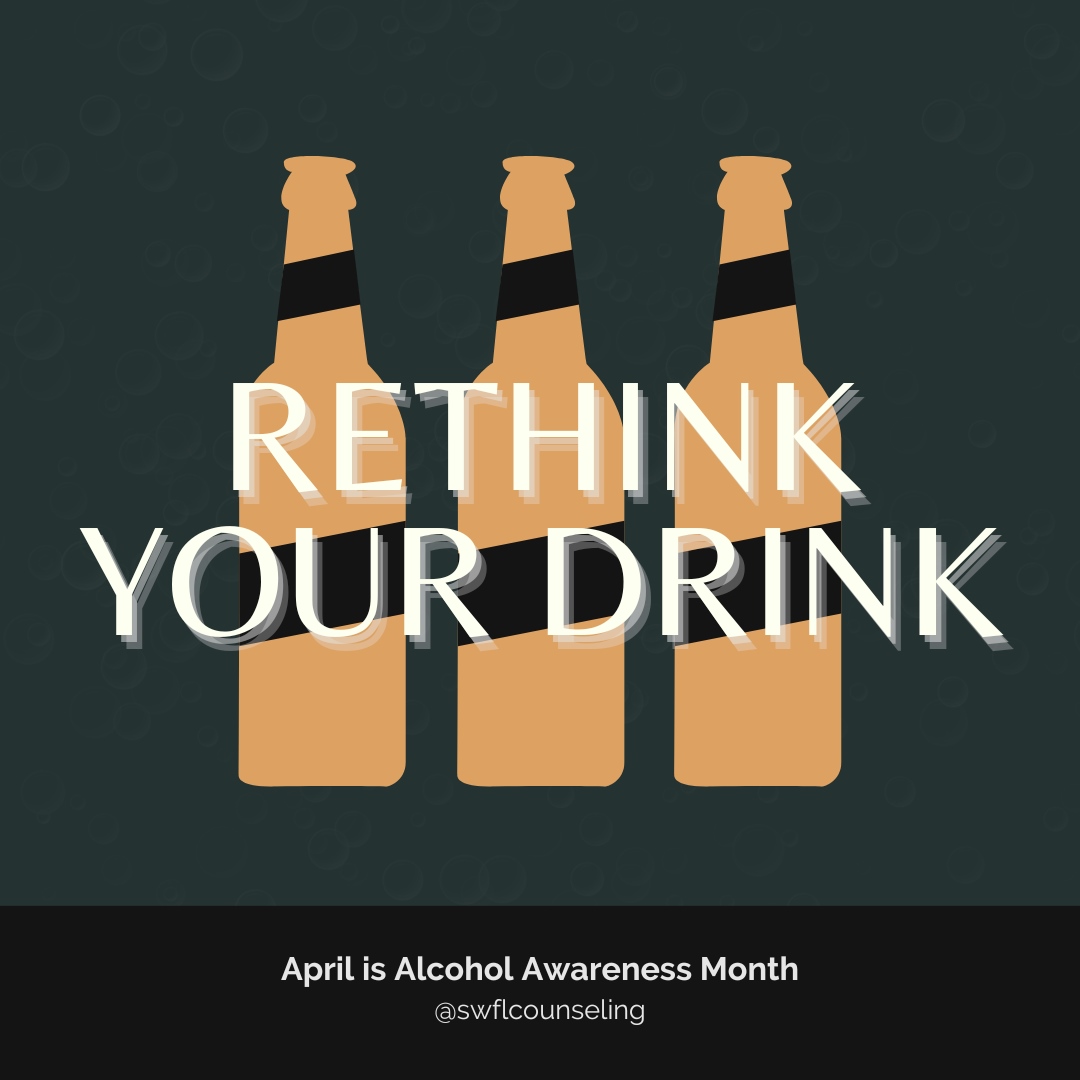In a world where social gatherings often revolve around a drink, and the portrayal of alcohol in the media is often glamorous, it’s easy to overlook the darker side of excessive drinking. Alcohol Use Disorder is a serious condition that affects millions worldwide, yet it remains widely misunderstood and stigmatized. With April being Alcohol Awareness Month, let’s delve into what Alcohol Use Disorder is, who is most at risk, and the various treatments available to help individuals break free from its grasp.
What is Alcohol Use Disorder?
Alcohol Use Disorder is a chronic relapsing brain disease characterized by an impaired ability to stop or control alcohol use despite adverse social, occupational, or health consequences. It’s not merely a matter of overindulgence but a complex interplay of genetic, environmental, and psychological factors.
Who is Most Vulnerable?
While anyone can develop Alcohol Use Disorder, certain factors increase the risk. Genetics play a significant role, with family history serving as a strong indicator. Additionally, environmental influences such as upbringing, peer pressure, and exposure to trauma can contribute. Mental health disorders like depression and anxiety often co-occur with Alcohol Use Disorder, creating a vicious cycle of self-medication and worsening symptoms. Some other vulnerabilities that may play a factor in developing Alcohol Use Disorder are:
Genetic Factors: Genetics play a significant role in the development of Alcohol Use Disorder. Research indicates that individuals with a family history of alcoholism are at a higher risk of developing the disorder themselves. Genetic studies have identified specific genes that may contribute to an increased susceptibility to alcohol dependence, although the interaction between genetic and environmental factors is complex.
Environmental Influences: Environmental factors also play a critical role in the development of Alcohol Use Disorder. Growing up in an environment where alcohol use is normalized or encouraged, such as households with a history of heavy drinking or peer groups that engage in excessive alcohol consumption, can increase the likelihood of developing Alcohol Use Disorder. Additionally, exposure to trauma, stressful life events, and societal influences can contribute to the development of problematic drinking patterns.
Psychological Factors: Individuals with certain psychological traits or disorders may be more vulnerable to developing Alcohol Use Disorder. Conditions such as depression, anxiety, post-traumatic stress disorder (PTSD), and attention-deficit/hyperactivity disorder (ADHD) are commonly associated with co-occurring alcohol use disorders. Alcohol may be used as a form of self-medication to alleviate symptoms of underlying mental health issues, leading to the development of Alcohol Use Disorder.
Biological Factors: Biological vulnerabilities, such as differences in brain chemistry and neurobiology, can also influence susceptibility to Alcohol Use Disorder. Alcohol affects neurotransmitter systems in the brain, including dopamine, serotonin, and gamma-aminobutyric acid (GABA), which play a role in reward processing, mood regulation, and impulse control. Variations in these systems may predispose certain individuals to alcohol dependence.
Developmental Stage: Age and stage of development can impact vulnerability to Alcohol Use Disorder. Adolescents and young adults are particularly susceptible due to ongoing brain development and increased susceptibility to peer influence. Early initiation of alcohol use during adolescence has been linked to a higher risk of developing Alcohol Use Disorder later in life.
Social and Cultural Factors: Societal and cultural norms surrounding alcohol use can influence vulnerability to Alcohol Use Disorder. In cultures where alcohol consumption is heavily promoted and socially accepted, individuals may be more likely to develop problematic drinking patterns. Social factors such as peer pressure, availability of alcohol, and advertising also contribute to vulnerability.
Personal History: Personal experiences and life circumstances can increase vulnerability to Alcohol Awareness Month. Individuals who have experienced trauma, adverse childhood experiences (ACEs), or significant life stressors may turn to alcohol as a coping mechanism.
Recognizing the Signs
It’s important to approach individuals with Alcohol Use Disorder with empathy and understanding, recognizing that addiction is a complex and multifaceted condition that requires appropriate support and intervention. If you or someone you know is displaying signs of Alcohol Use Disorder, seeking help from a qualified healthcare professional or addiction specialist is essential to begin the journey towards recovery.
Recognizing the signs of Alcohol Use Disorder is crucial for identifying individuals who may be struggling with alcohol addiction. These signs include an increased tolerance to alcohol, withdrawal symptoms such as tremors and anxiety when attempting to stop drinking, loss of control over alcohol consumption despite negative consequences, preoccupation with alcohol-related activities, changes in behavior like mood swings and isolation, physical health issues such as liver disease, co-occurring mental health disorders, loss of interest in previously enjoyed activities, and unsuccessful attempts to quit drinking.
Understanding Treatment Options
Recognizing Alcohol Awareness Month as a treatable medical condition is the first step toward recovery. Counseling and inpatient rehabilitation services offer vital support for individuals struggling with alcohol addiction.
Cognitive-Behavioral Therapy (CBT) focuses on identifying and challenging negative thought patterns and behaviors associated with drinking. By developing coping strategies and modifying dysfunctional beliefs, individuals can learn healthier ways of managing stress and cravings.
Dialectical Behavior Therapy (DBT) combines cognitive-behavioral techniques with mindfulness practices to help individuals regulate emotions and improve interpersonal relationships. It emphasizes acceptance and change, empowering individuals to break free from destructive patterns of behavior.
Motivational Interviewing is a client-centered approach that seeks to evoke internal motivation for change by exploring ambivalence and building self-efficacy. By fostering a collaborative and non-confrontational environment, therapists help individuals resolve their ambivalence and commit to making positive changes.
Eye Movement Desensitization and Reprocessing (EMDR) targets traumatic memories that contribute to addictive behaviors. By processing these memories while engaging in bilateral stimulation, individuals can reframe their experiences and reduce the emotional distress driving their alcohol use.
Peer Support Groups, like SMART Recovery, provide a supportive community as people begin their recovery journey. These groups help people recover from their addictive and problematic behaviors through self-empowerment and evidence-based approaches to show how to begin experiencing a Life Beyond Addiction.
Twelve Step Programs, like Alcoholics Anonymous (AA), provide a supportive community and structured approach to recovery. By following a set of principles and attending regular meetings, individuals find fellowship and accountability on their journey toward sobriety.
Demystifying Inpatient Rehabilitation Services
Despite rumors and portrayals in the media that may suggest otherwise, inpatient rehabilitation plays a vital role in helping individuals with Alcohol Use Disorder overcome their addiction. Inpatient rehab provides a structured and supportive environment where individuals can safely detoxify, undergo comprehensive assessment, receive evidence-based therapies, and develop essential skills for long-term sobriety, combining a comprehensive approach with a holistic angle. Contrary to popular misconceptions, inpatient rehab is not a punishment but rather a compassionate and effective treatment option that addresses the physical, psychological, and social aspects of addiction. Through personalized care plans and multidisciplinary support, inpatient rehab empowers individuals to break free from the cycle of addiction and embark on a journey towards lasting recovery.
Building Resilience
In moments of stress or emotional turmoil, the urge to turn to alcohol for relief can feel overwhelming. However, building resilience means cultivating coping strategies that support your mental and emotional well-being without relying on alcohol. Here are some effective coping skills designed to help reduce the urge to drink, and empower you in the process:
Mindfulness and Grounding Techniques: Practice mindfulness exercises and grounding techniques to anchor yourself in the present moment and manage difficult emotions without turning to alcohol. Simple practices like deep breathing or focusing on your senses can help center your thoughts and reduce the urge to drink.
Physical Activity: Engage in regular physical activity such as exercise, yoga, or dancing to release tension, boost mood, and provide a natural alternative to alcohol-induced relaxation. Physical movement not only promotes physical health but also supports mental well-being by reducing stress and anxiety.
Relaxation Practices: Incorporate relaxation techniques into your daily routine, such as deep breathing exercises or progressive muscle relaxation, to calm the mind and body. By learning to relax without alcohol, you can develop healthier coping mechanisms for managing stress and promoting inner peace.
Seeking Support: Connect with a supportive network of friends, family, or support groups who understand your journey and can offer encouragement and guidance. Surrounding yourself with positive influences can provide the strength and motivation needed to resist the urge to drink.
In addition to these coping strategies, resources like “The Alcohol Experiment” by Annie Grace and “This Naked Mind”, also by Annie Grace, offer valuable insights and tools for reevaluating your relationship with alcohol and breaking free from its grip. By empowering yourself with knowledge and practical strategies, you can navigate challenging moments with resilience and make mindful choices that prioritize your mental health and sobriety. Remember, you are not alone in this journey, and seeking support is a sign of strength. Together, we can overcome the urge to drink and embrace healthier ways of coping with life’s challenges.
April is Alcohol Awareness Month
As we observe Alcohol Awareness Month this April, it’s crucial to shine a light on the importance of addressing Alcohol Use Disorder with compassion and understanding. Alcohol Use Disorder is a serious and complex condition that affects millions of individuals worldwide, yet it often remains shrouded in stigma and shame. By fostering open and honest conversations about Alcohol Use Disorder, we can decrease the stigma surrounding alcohol addiction and increase support and resources for those struggling. It’s essential to recognize that Alcohol Use Disorder is a treatable disorder, and recovery is possible with the right support and interventions. By raising awareness and advocating for accessible treatment options, we can help individuals affected by Alcohol Use Disorder reclaim their lives and embark on a journey towards lasting sobriety and wellness. Let’s use this month as an opportunity to educate ourselves and others, break down barriers to seeking help, and build a community of support and understanding for those navigating the challenges of alcohol addiction.
A Message of Hope
It’s crucial to recognize that addiction is not a moral failing but a treatable mental health disorder. If you or someone you know is struggling with alcohol use, know that help is available. Reach out to a qualified healthcare professional or support group to begin the journey toward healing and recovery. Together, we can break the chains of addiction and embrace a brighter, sober future.








